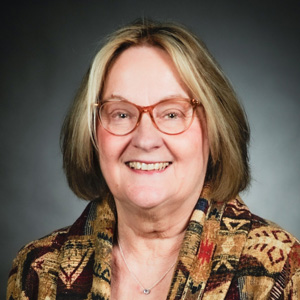Nursing Knowledge, Exchange, Collaboration: Canada's Eastern Coast to the International Stage
Author: Dr Joanne Smith-Young, Kip Bonnell
JBI Memorial University Nursing for Evidence-Based Healthcare
Memorial University is Canada’s easternmost university, located in St. John’s, Newfoundland and Labrador, serving a province of just over half a million people. It is a place defined by our surroundings – rugged coastlines and healthcare systems that face unique challenges of distance, access and equity. Against this backdrop, nursing research has become urgent, having to transform to suit the unique needs of these culturally and historically diverse communities.
The 2025 World Evidence-Based Healthcare (EBHC) Day theme, Collaborative Knowledge Communication, directly reflects our experience in Newfoundland and Labrador, where meaningful progress in nursing and healthcare depends on working together with diverse affected parties across distances, cultures and health systems.

Image credit: Atlantic coastal waves (watercolour) – Jennifer Collins, PhD, RN(BScN), CCNE, Assistant Professor, Faculty of Nursing, Memorial University.
A legacy rooted in geography and vision
The history of nursing in our province has always been shaped by the demands of geography. In outposts and northern communities, nurses have often been the only consistent health presence, providing a broad range of services, including primary care, clinical leadership, care for mothers and pregnant women, emergency response and public health education. Their nursing practice required resourcefulness, adaptability and independence, which are qualities that continue to define our Memorial University Faculty of Nursing’s (MUNFON’s) approach to education, practice and research.
Building research capacity for a diverse province
Over the decades, nursing in Newfoundland and Labrador has evolved into a community responsive to the needs of a population facing unique health challenges. We have a geographically diverse population, the highest rates of chronic disease in the country and workforce challenges. This includes challenges with recruiting and retaining healthcare professionals in rural and remote regions. Therefore, access to healthcare continues to be a critical concern in these areas. These challenges guide MUNFON’s research programs and continue to shape the faculty’s research focus: primary healthcare and communicating health research findings in a clear, accessible way to those who need them (also known as ‘knowledge translation’). This includes co-design studies with patients, families and healthcare partners to ensure that local realities shape the evidence we produce.
One such example includes Dr Joy Maddigan’s ‘Integrating Physical and Mental Health Care for Individuals with Serious Mental Illness (SMI)’. This initiative addresses structural barriers that contribute to poor physical and mental health of those living with SMI. Through an engagement process that involved partners such as lived experience experts, community mental health advocates and agencies, healthcare professionals and government policymakers, an innovative wellness study was collaboratively developed. The intervention will be tested through a partnership among community mental health agencies and the Mental Health and Addictions Program of Newfoundland and Labrador Health Services.

Image credit: Pierre the Puffin (rock sculpture) – Jennifer Collins, PhD, RN(BScN), CCNE, Assistant Professor, Faculty of Nursing, Memorial University.
JBI: Connecting local realities to global evidence
A milestone came in 2021, when we became an official JBI Collaborating Centre. JBI is a worldwide collaboration that promotes the synthesis, transfer and use of research evidence to improve healthcare outcomes internationally. Now known as JBI Memorial University Nursing for Evidence-Based Healthcare, the Centre links our researchers to a global network of evidence synthesis and knowledge translation, helping produce high-quality, relevant, up-to-date systematic reviews to inform health decisions and care for patients. We believe synthesising nursing evidence contributes to the body of nursing knowledge and to nursing practice. As members reflected: ‘The hard work in producing systematic reviews is well worth it,’ and ‘The JBI Collaboration is about helping each other and learning together.’ Among them was Dr Sandra Small, our first JBI Affiliated Group convenor and now Associate Editor of the JBI Evidence Synthesis journal.
Growing from strong roots
With mentorship from the Queen’s University Centre of Excellence and support from JBI Adelaide, we have brought our local realities into international conversations while using global research evidence to strengthen local practice.
Dr Julia Lukewich (Professor) exemplifies this impact through her leadership in JBI knowledge syntheses on the role of Registered Nurses (RNs) in primary care. Her research addresses RNs not being used to their full capacity in Newfoundland and Labrador as well as globally, and shows their positive influence on patients and the health system where they are used optimally. In February 2024, she convened an international summit in St. John’s that gathered nursing and health leaders from education, practice, policy and research to advance RN roles in team-based primary care. Collaboration at the Summit included patient partners, local leaders and international experts, working together to share models like Brazil’s Family Health Strategy and RN-led clinics in the United States. These examples showed how diverse perspectives can co-create solutions to improve access, equity and team-based care in Canada. Dr Lukewich is also leading a CIHR-funded umbrella review, where her team combines and compares international research evidence on the scope of practice of primary care nurses.
Along with Deanne Curnew (Assistant Professor), Dr Lukewich also co-authored a JBI-designed scoping review on the integration of primary care education into undergraduate nursing programs. Together, these projects highlight leadership in advancing nursing roles in both practice and education, ensuring that evidence informs system-level reform in Canada and beyond.
Our JBI Centre has also become a hub for addressing pressing health concerns that are grounded in the experiences of local families:
- Experiences of parents of teenagers with life-threatening food allergies: A systematic review protocol (2024) – led by Dr Karen Dobbin-Williams, Dr Renée Crossman and Michelle Swab, highlighting adolescent vulnerabilities and the need for transitional care.
- Accessing services for Autism Spectrum Disorder: A systematic review (2025) — co-led by Dr Joanne Smith-Young, uncovering diagnostic delays and fragmented systems of care with implications for policy and training.
Our research demonstrates how MUNFON’s scholarship addresses both the specific needs of families living in both urban and rural areas of Newfoundland and Labrador, a province where the population is widely dispersed and the burden of genetically linked and chronic diseases is significant, while also informing international evidence platforms.
Take, for example, the work of Dr Renée Crossman (Assistant Professor). Informed by her own experience with diabetes, her research reframes the condition as both a medical and a social issue, emphasising cost, stigma and rural access. As she has explained in ‘I was just Renée’, diabetes management is about more than biomarkers – it is about lived experience. Her work, grounded in community realities, where 33% of the population lives with diabetes or prediabetes, can help redesign care systems to be more fair and responsive.
Similarly, Assistant Professor Erica (Samms) Hurley, a Mi’kmaw nurse scholar from the West Coast of Newfoundland and Labrador, brings Indigenous knowledge and experience to the forefront of nursing education and practice. By strengthening relationships with Indigenous communities and embedding cultural safety across our programs, her leadership, personal journey and evolution as a Mi’kmaw researcher and woman has helped shape our culturally grounded curriculum and strategic plan.
MUNFON’s new Global Health Committee extends this perspective outward. In May 2025, MUNFON co-hosted a Global Health Symposium, convening local and international voices to address themes of equity in healthcare, planetary health and Indigenous rights. The symposium underscored how Newfoundland and Labrador’s local health realities connect to global challenges.
Equally important is the MUNFON’s commitment to education across rural regions of the province. Through satellite learning rural sites in Gander, Grand Falls-Windsor and Happy Valley-Goose Bay, aspiring nurses can ‘learn where you live,’ pursuing their degrees close to home while building the capacity of local health systems. These sites demonstrate how our faculty turns the challenges of geography into opportunities for education,recruitment, retention and research.
This renewed approach has accelerated the pace and scale of our research. From 2019 to 2025, our research funding grew dramatically, allowing more ideas to move from proposal to practice, both at home and abroad.
Examples include Dr Jennifer Collins’ arts-based and nursing education research that mentors the next generation of scholars, global collaborations led by Dr Ahtisham Younas, internationally-recognised diabetic foot care by Dr Kathleen Stevens and Dr Jill Bruneau, honoured nationally for nurse practitioner education.
Today, under the leadership of Dean Dr April Pike, we continue to expand in both scope and impact. Dr Pike’s own teaching innovations – such as using Memorial’s community garden to link food security with the social determinants of health – illustrate the faculty’s commitment to connecting classroom, community and care. Just as importantly, processes have been streamlined through our Nursing Research Unit (NRU), ensuring faculty have stronger support for grant development and funding applications.
Looking ahead
As the Faculty of Nursing nears its 60th anniversary in 2026, we celebrate a legacy shaped by this province’s geography and communities. Our research remains rooted in Newfoundland and Labrador while reaching outward to strengthen health systems worldwide. Through initiatives like Research Week and our upcoming virtual Nursing Research Exchange in November 2025, we hope to inspire future leaders who embody the spirit of collaborative knowledge communication.
Geography gave us resilience; our research is transforming that resilience into change.
References
Crossman, R. (2021). Living with a machine: A critical focused ethnography of diabetes practices in the context of insulin pumps [Doctoral dissertation, University of Alberta]. University of Alberta Libraries. https://doi.org/10.7939/r3-jdxe-ca28
Curnew, D., Lukewich, J., Mathews, M., Poitras, M.-E., & Romme, K. (2023). Integration of primary care education into undergraduate nursing programs: A scoping review protocol. JBI Evidence Synthesis, 21(7), 1493–1500. https://doi.org/10.11124/JBIES-22-00312
Curnew, D., Lukewich, J., Leamon, T., Mathews, M., Poitras, M.-E., Stevens, K., Romme, K., & Ryan, D. (2025). Integration of primary care education into undergraduate nursing programs: A scoping review. Nurse Education in Practice, 86, 104391. https://doi.org/10.1016/j.nepr.2025.104391
Dobbin-Williams, K., Crossman, R., & Swab, M. (2024). Experiences of parents of teenagers with life-threatening food allergies: A systematic review protocol. JBI Evidence Synthesis, 22(10), 2170–2176. https://doi.org/10.11124/jbies-23-00380
Hurley, E. S., King, K., Jackson, M., & Caine, V. (2023). Contemplating place in nursing: Ontological understandings. International Journal of Indigenous Health, 18(1), 1–16. https://doi.org/10.32799/ijih.v18i1.39511
Lukewich, J., Asghari, S., Marshall, E., Mathews, M., Swab, M., Trammer, J., Bryant-Lukosius, D., Martin-Misener, R., Norful, A., Ryan, D., & Poitras, M.-E. (2022). Effectiveness of registered nurses on system outcomes in primary care: A systematic review. BMC Health Services Research, 22, 440. https://doi.org/10.1186/s12913-022-07662-7
Lukewich, J., Martin-Misener, R., Norful, A., Poitras, M.-E., Bryant Lukosius, D., Asghari, S., Marshall, E., Mathews, M., Swab, M., Ryan, D., & Trammer, J. (2022). Effectiveness of registered nurses on patient outcomes in primary care: Systematic review. BMC Health Services Research, 22, 740. https://doi.org/10.1186/s12913-022-07866-x
Lukewich, J., Mathews, M., Myles, S., Dufour, É., Asghari, S., Rioux-Dubois, A., … (2025). Scope of practice of primary care nurses: A protocol for an umbrella review of international literature. BMJ Open, 15(7), e103319. https://doi.org/10.1136/bmjopen-2025-103319
Smith-Young, J., & Woods, A. (2025). Best practice information sheet: Parents’ and guardians’ experiences of barriers and facilitators in accessing autism spectrum disorder diagnostic services for their children. JBI EBP Database, 27(1), 1-4. 27(1) 2025.pdf
Twohig, P. L. (2019). ‘Everything possible is being done’: Place and health in Newfoundland and Labrador. Canadian Bulletin of Medical History, 36(1), 1–26. https://www.jstor.org/stable/10.2307/48742812
Links to Additional Resources
https://collections.banq.qc.ca/document/JSCJ-fSAE2nYzjXbbHrr6Q
https://ualberta.scholaris.ca/items/2b5dbed5-83e6-412e-91a6-5f0a8a82c50f
https://gazette.mun.ca/campus-and-community/i-was-just-renee/
https://gazette.mun.ca/research/not-just-numbers/
https://avatraining.ca/ecr-teaching-release-award-recipients/
To link to this article - DOI: https://doi.org/10.70253/GMZG5809
Disclaimer
The views expressed in this World EBHC Day Blog, as well as any errors or omissions, are the sole responsibility of the author and do not represent the views of the World EBHC Day Steering Committee, Official Partners or Sponsors; nor does it imply endorsement by the aforementioned parties.
